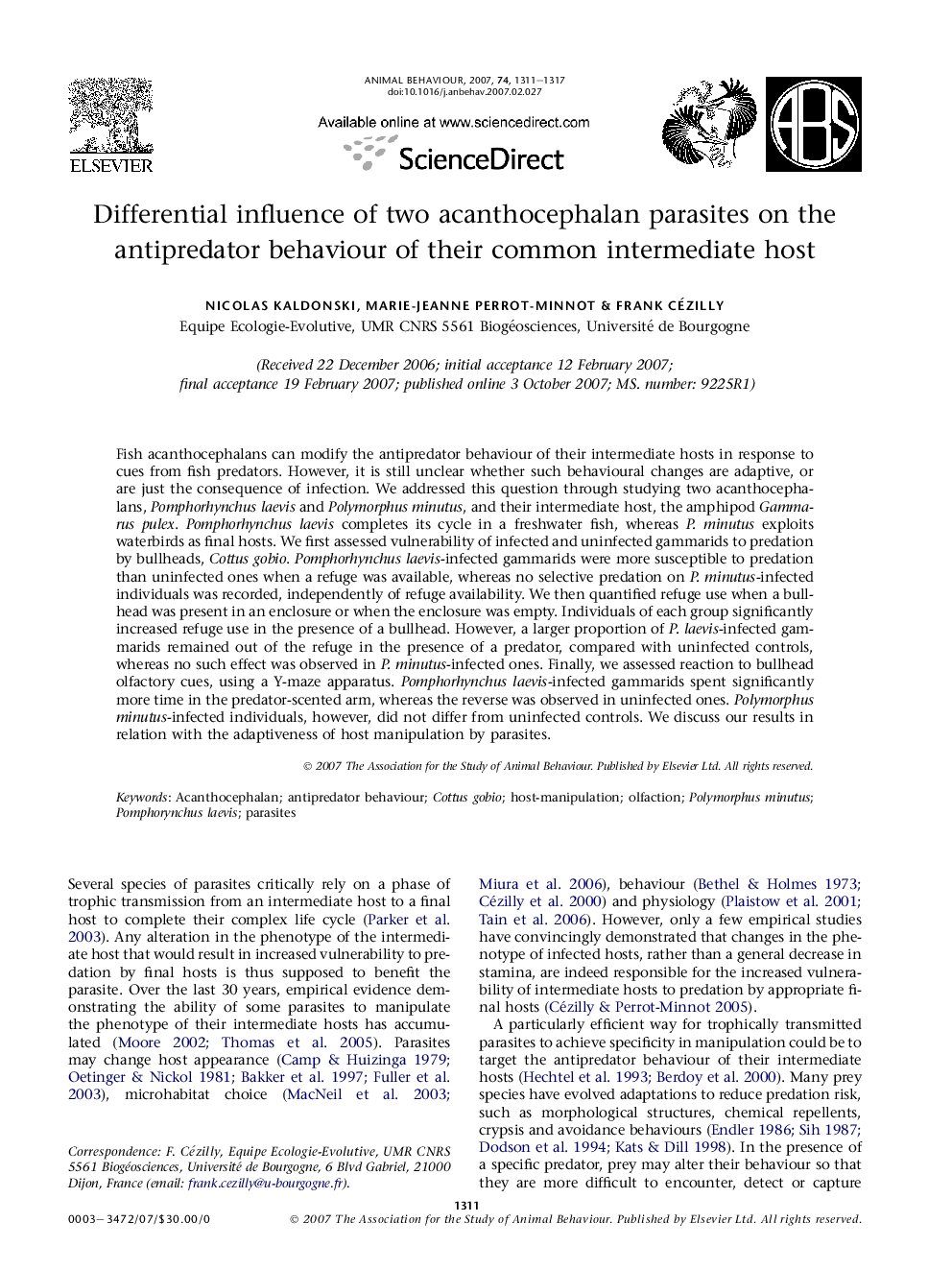| Article ID | Journal | Published Year | Pages | File Type |
|---|---|---|---|---|
| 2418286 | Animal Behaviour | 2007 | 7 Pages |
Fish acanthocephalans can modify the antipredator behaviour of their intermediate hosts in response to cues from fish predators. However, it is still unclear whether such behavioural changes are adaptive, or are just the consequence of infection. We addressed this question through studying two acanthocephalans, Pomphorhynchus laevis and Polymorphus minutus, and their intermediate host, the amphipod Gammarus pulex. Pomphorhynchus laevis completes its cycle in a freshwater fish, whereas P. minutus exploits waterbirds as final hosts. We first assessed vulnerability of infected and uninfected gammarids to predation by bullheads, Cottus gobio. Pomphorhynchus laevis-infected gammarids were more susceptible to predation than uninfected ones when a refuge was available, whereas no selective predation on P. minutus-infected individuals was recorded, independently of refuge availability. We then quantified refuge use when a bullhead was present in an enclosure or when the enclosure was empty. Individuals of each group significantly increased refuge use in the presence of a bullhead. However, a larger proportion of P. laevis-infected gammarids remained out of the refuge in the presence of a predator, compared with uninfected controls, whereas no such effect was observed in P. minutus-infected ones. Finally, we assessed reaction to bullhead olfactory cues, using a Y-maze apparatus. Pomphorhynchus laevis-infected gammarids spent significantly more time in the predator-scented arm, whereas the reverse was observed in uninfected ones. Polymorphus minutus-infected individuals, however, did not differ from uninfected controls. We discuss our results in relation with the adaptiveness of host manipulation by parasites.
